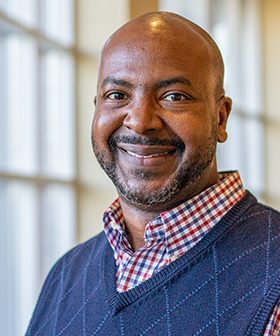Using Social Events to Share the Gospel

It was the Monday after Kobe Bryant died. At work, my colleagues and I shared memories and thoughts throughout the workday, and by the end of the day, I was emotionally exhausted. I arrived home and parked under a streetlamp in the dark. I exited my car and was hit with the strong smell of marijuana. It was coming from a young man’s car two spaces away. Do I ignore him? Call the police? Tell him to leave? Realizing that would’ve been me 30 years ago, I did what I wished someone had done while I was in high school—I approached his car and kindly introduced myself.
“WHAT DO YOU THINK ABOUT Kobe Bryant’s death?” I asked.
“I can’t get it out of my mind,” Hunter (not his real name) replied. Hunter was so afraid of dying, he said, “I pray each time I get in my car.”
I’m ashamed to say that often events in society become no more than news and information to me. When stories appeared about Kobe and GiGi Bryant, the coronavirus, stock market fluctuations, floods, wildfires, and mass shootings, some stories caused me to pause, but not for long. It was just more information for an information-addicted culture. But what if the information became more than that? What if I applied a different filter and a different lens to the information?
That night when I spoke to Hunter, I wanted the tragedy of nine people killed in a helicopter to be more than another news story. More than just information. More than, “Did you hear…?” and “Can you believe…?” I wanted it to be an opportunity to engage someone in meaningful conversation, and nothing, ultimately, is more meaningful than the Gospel.
THE APOSTLE PAUL WAS SKILLED AT USING CULTURE CUES and events to open spiritual conversations. In Acts 17:16–34, Paul demonstrates how he observed and understood the worldview of those around him. Furthermore, he intentionally used cultural cues to invite people to consider the reasonableness of their worldview in light of one rooted in Scripture. Perhaps most importantly, Paul and Mid-America founder Dr. B. Gray Allison believed strongly in providing an opportunity for people to believe in Jesus. The result was that “some men joined him and believed.”
In talking with Hunter, it became clear his worldview was that death is random, something to be feared, and that prayer would tip the odds in his favor. I told him, “There’s no guarantee you’ll arrive anywhere safely. Even if you pray, there’s no guarantee. Kobe’s daughter was only 13, and now she’s gone,” I continued. “Kobe even went to church that morning. If you were to drive away, get struck and die, how sure are you that you’d go to be with the Lord and not to hell?” I asked him.
“I’m not right. I won’t even lie to you. I’m not sure,” he said. I shared how I came to Christ, explained that Jesus conquered death and offers everyone eternal life, and that Hunter doesn’t have to live in fear of death. As we talked further, I asked Hunter if he would like to put his faith in Christ for salvation. He said yes and prayed right there in his car to receive Jesus.